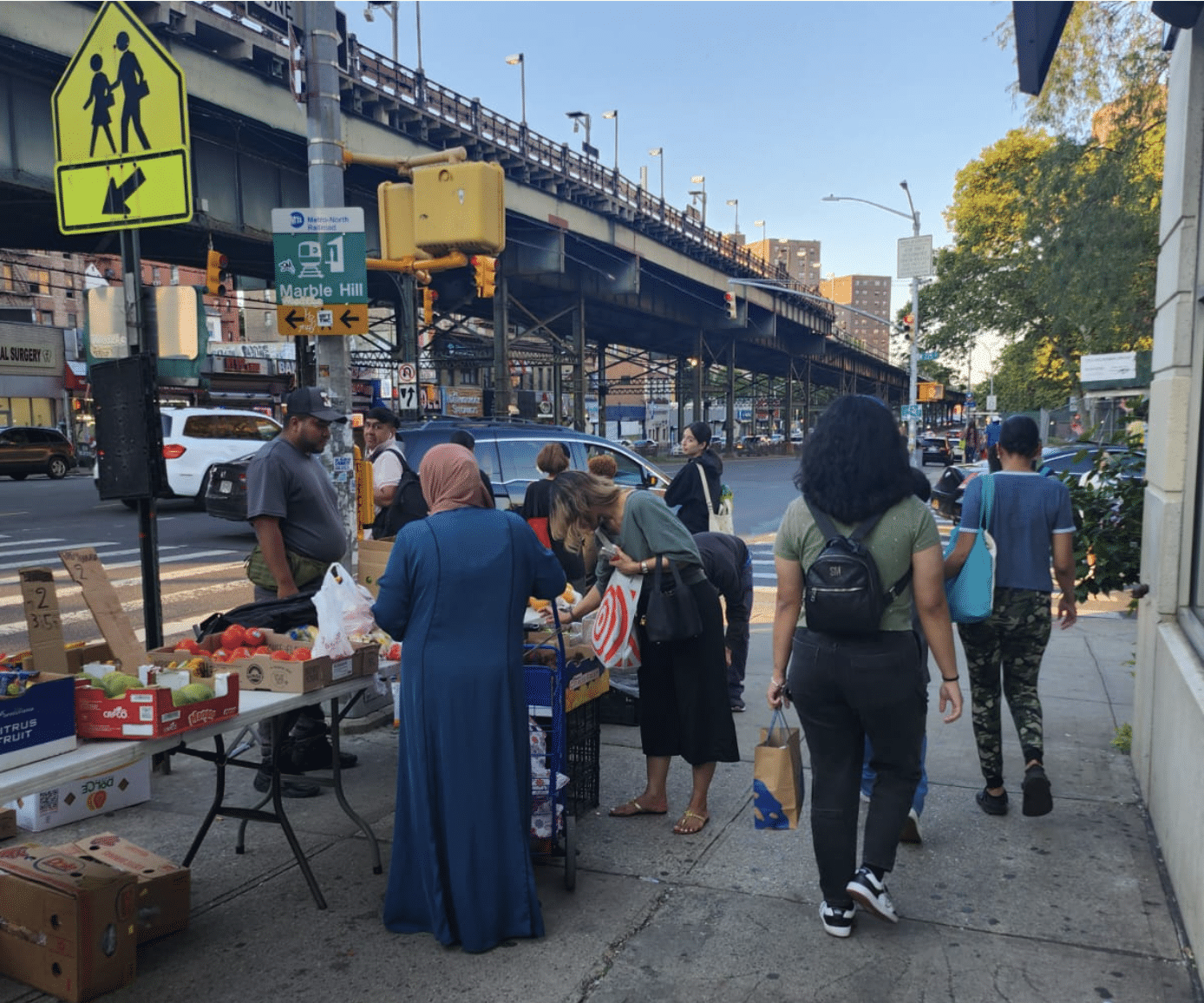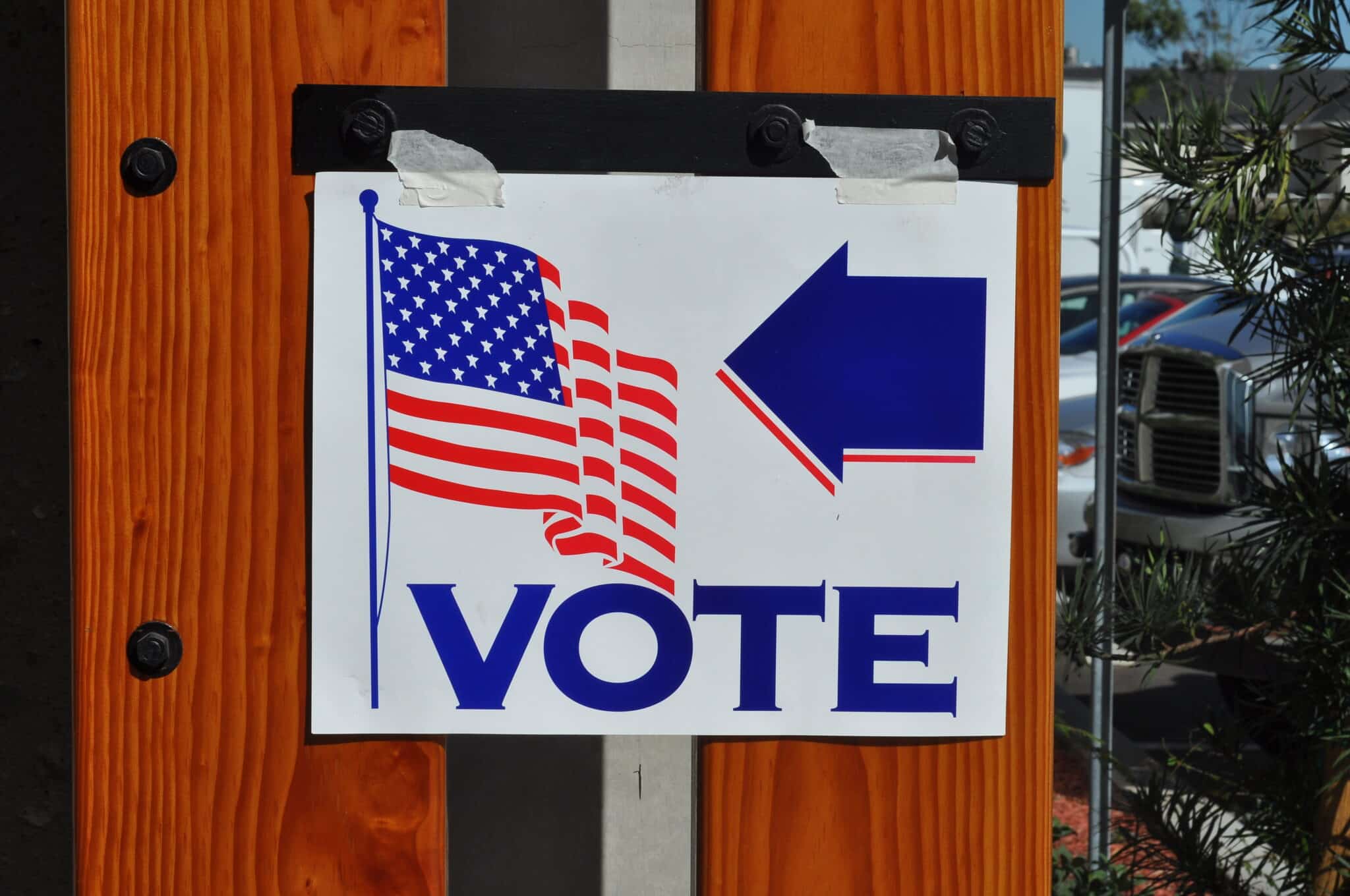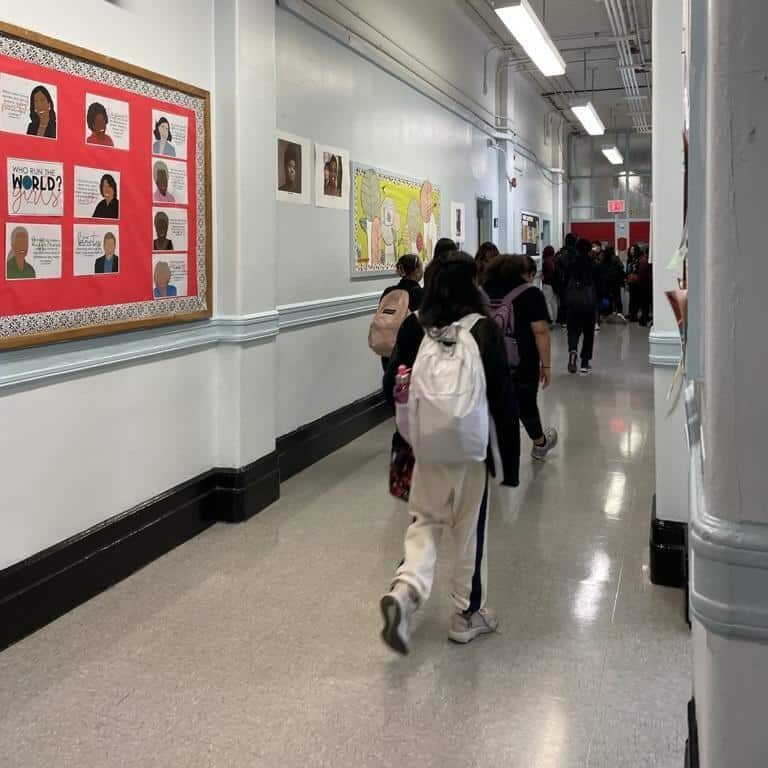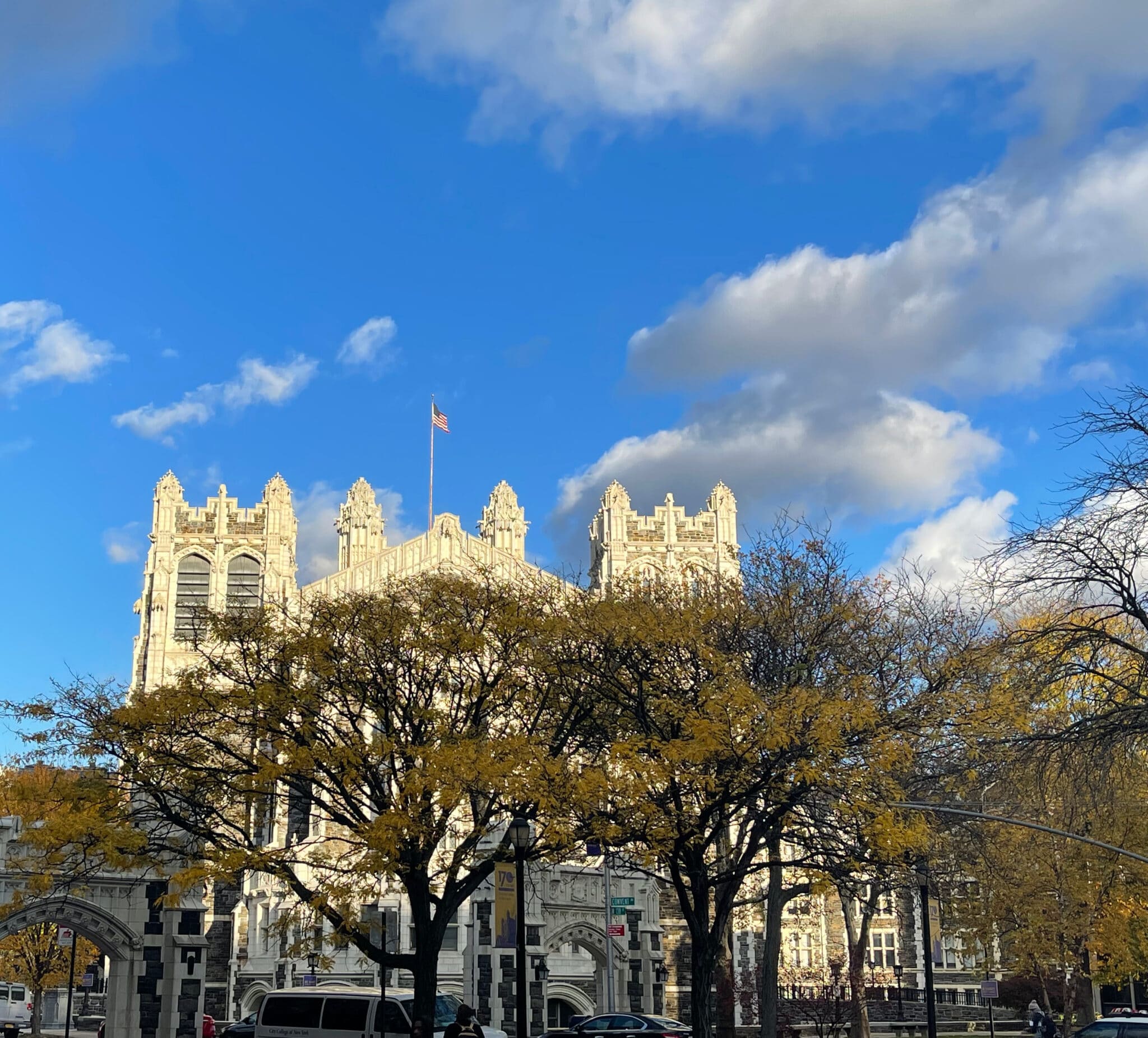The busiest corner of Marble Hill in November 2024, where the voices of the community share stories of resilience, challenges, and hope. Photo by Daniela Aristizábal.
Donald Trump’s 2024 reelection has left the Vásquez-Ortiz family of Marble Hill, a neighborhood in the uppermost section of Manhattan, grappling with uncertainty and cautious hope. Like many working-class families, they face concerns about wages, healthcare, and social programs. They wonder whether the policies of the next Trump Administration will mitigate their struggles or exacerbate them.
“We’ve been here before, but it feels different now. It’s like the weight of the unknown is heavier than ever,” says Jomary Vásquez, 26, reflecting on the uncertainty her family faces after Donald Trump’s re-election in 2024. For the Vásquez-Ortiz family—Jomary, her brothers Ariel and Adrian, and their mother Yomali—the next four years bring a range of challenges tied to their working-class reality. From stagnant wages and rising costs to fears of cuts to essential programs, they worry whether their struggles will be seen or addressed by those in power.
Ariel Vásquez, 20, works full-time at Wendy’s, earning minimum wage. Even with long hours, he struggles to make ends meet. “I work long hours, but it’s still not enough. Rent keeps going up, food costs more—if wages don’t rise, how are we supposed to survive?” For Ariel, Trump’s resistance to raising the federal minimum wage feels like a direct obstacle to improving his circumstances.
His brother, Adrian Vásquez, 25, is a barber who fears that Trump’s proposed tax reforms will disproportionately benefit the wealthy. “They say taxes will go down, but for who? It feels like they always help the big guys, and we’re stuck paying more,” Adrian says, echoing the skepticism of many working Americans.
Jomary Vásquez works as a home health aide, caring for elderly patients who depend on Medicaid. For her, the prospect of cuts to the program raises both professional and personal concerns. “If they cut Medicaid, what happens to them? And what happens to me?” she asks, her voice filled with worry for her patients and her own job security.
Their mother, Yomali Ortiz, 45, is unemployed and relies on government assistance to support the family. Programs like SNAP have been vital for their survival, but Yomali fears stricter requirements could leave them with even fewer resources. “If they cut the little we get, what are we supposed to do? We’re already stretched thin,” she says.
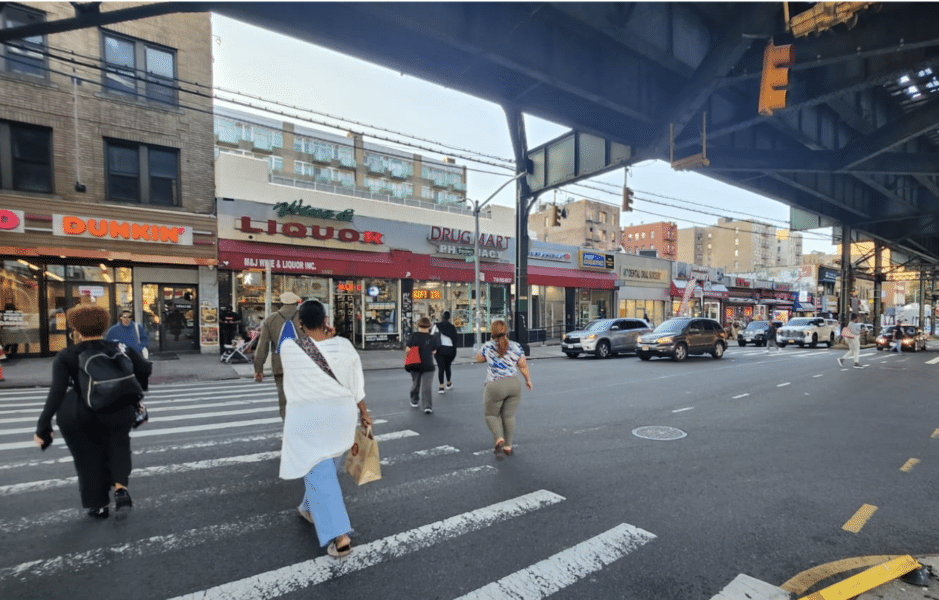
Pedestrians navigate the busy streets of Marble Hill in November 2024, where the elevated tracks frame a neighborhood. Photo by Daniela Aristizábal.
The Vásquez-Ortiz family’s struggles are emblematic of broader concerns shared by many working-class Americans. While Trump’s supporters celebrate his promises of economic growth, others wonder if those benefits will ever trickle down to them. Adrian sums up the family’s frustration: “We don’t need slogans; we need action that helps people like us.”
Despite their worries, they remain determined to make their voices heard. Jomary emphasizes the importance of staying informed and advocating for their community. “It’s not about giving up—it’s about fighting for what we need. But it’s hard to believe anyone in Washington is really listening,” she says.
For families like the Vásquez-Ortiz’s, Trump’s reelection feels like a stark reminder of the work still needed to address everyday struggles. They hope for leaders who will see them not just as statistics but as individuals with real needs and aspirations. “We just want to be heard,” Ortiz says. “That’s not too much to ask, is it?”
Tags: 2024 Elections cost of living Daniela Aristizabal Donald Trump economy family government government assistance Jomary Vásquez Marble Hill Medicaid SNAP benefits taxes Vásquez-Ortiz working-class Yomali Ortiz
Series: Elections
